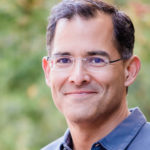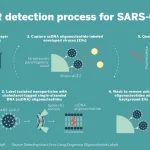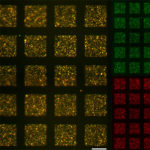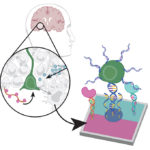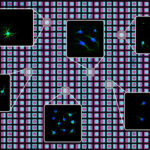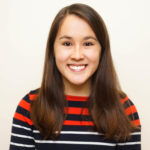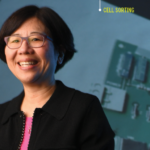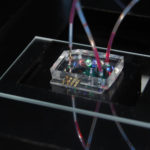When asked to describe her microfluidic device, Berkeley mechanical engineering professor Lydia Sohn keeps it simple. “Here’s what I tell my family: It’s like we’re taking a straw, and we’re drinking tapioca boba balls,” says Sohn, who holds the Almy C. Maynard and Agnes Offield Maynard Chair in Mechanical Engineering. “Some boba are bigger than …
David Schaffer: Research that takes risks must be supported
David Schaffer remembers sitting on his father’s lap as a child, curiously delving into science books and crafting mnemonic phrases that instilled in him the building blocks of biology. “He was a biochemist who would make up these silly rhymes that helped me remember microorganisms or parts of the body, like, ‘Your sternum can burn’em,’” …
Researchers devise a new way to detect and quantify SARS-CoV-2 in pooled samples
Testing wastewater for SARS-CoV-2 is one way public health departments are monitoring the spread of COVID-19 within their communities, but dilution in these large, pooled samples can prevent accurate readings of viral levels. Motivated by this challenge, UC Berkeley researchers have developed a new, more sensitive method for detecting and quantifying this virus in large …
UC Berkeley researchers develop COVID-19 detection for large samples
UC Berkeley researchers have created a method to detect and quantify COVID-19 in a large sample. Their study, published in Analytical Chemistry on May 18, introduces the method of detecting an intact virus by exogenous-nucleotide reaction, or DIVER. This quantifies the amount of virus in a pool without being affected drastically by dilution. The method …
Could liposomes be the unsung heroes of the pandemic?
Liposomes may be the unsung heroes of the COVID-19 pandemic. Without the protection of these microscopic vesicles, the delicate strands of messenger RNA (mRNA) that lie at the heart of the Pfizer and Moderna COVID-19 vaccines would be quickly destroyed by enzymes in the body, making it nearly impossible for their genetic instructions to reach the …
Science Daily: New Technique ‘Prints’ Cells to Create Diverse Biological Environments
With the help of photolithography and programmable DNA, researchers have created a new technique that can rapidly ‘print’ two-dimensional arrays of cells and proteins that mimic a wide variety of cellular environments in the body. This technique could help scientists develop a better understanding of the complex cell-to-cell messaging that dictates a cell’s final fate.
New Technique ‘Prints’ Cells to Create Diverse Biological Environments
Like humans, cells are easily influenced by peer pressure. Take a neural stem cell in the brain: Whether this cell remains a stem cell or differentiates into a fully formed brain cell is ultimately determined by a complex set of molecular messages the cell receives from countless neighbors. Understanding these messages is key for scientists …
Sohn Lab Grad Student Olivia Scheideler Accepted Into MIT’s Rising Stars in Mechanical Engineering Workshop
Olivia Scheideler, a graduate student in ME Professor Lydia Sohn’s Sohn Research Lab, has been accepted into the Rising Stars in Mechanical Engineering Workshop at the Massachusetts Institute of Technology this Fall. The workshop is aimed at women graduate students and postdocs considering future careers in academia. The inaugural Rising Stars event is expected to draw 30 of the …
Sohn Lab Engineers Squeeze Cells Through Microtubes to Detect Cancer
Originally published on 4/17/18 | Berkeley ENGINEERING News by Wallace Ravven Photo by Noah Berger Over the course of her lifetime, a woman has a one in eight chance of developing breast cancer. With the past few decades’ advances in early detection and treatment, a diagnosis by no means forecasts defeat. The earlier the cancer …
Nature’s Microsystems & Nanoengineering Spotlights Sohn Research Lab’s Paper as Featured Article
A research paper from the Sohn Research Lab is now the featured article in the latest issue of the online journal from Springer Nature, Microsystems Nanoengineering. Their paper, “Characterizing cellular mechanical phenotypes with mechano-node-pore sensing,” covers a “simple and innovative technique for measuring the mechanical properties of cells could lead to a versatile clinical diagnostic tool.” Congratulations …
ME Professor Lydia Sohn to be Inducted into Medical and Biological Engineering Elite
For immediate release: February 6, 2017 For further information, contact Jason Hibner, Director of Membership & Operations, 202 496-9660, jhibner@aimbe.org WASHINGTON, D.C.— The American Institute for Medical and Biological Engineering AIMBE has announced the pending induction of Lydia Sohn, Ph.D., Professor, Mechanical Engineering, University of California, Berkeley, to its College of Fellows. Dr. Sohn was …
ME Professor Lydia Sohn Presents at the World Economic Forum’s Annual Meeting of the New Champions
ME Professor Lydia Sohn presented an IdeasLab, Precision Medicine at UC Berkeley, with three other UC Berkeley Professors, Dan Fletcher, Amy Herr, and Ana Claudia Arias, at the World Economic Forum’s Annual Meeting of the New Champions “Summer Davos” in Dalian, China. The session was moderated by NPR’s science correspondent, Joe Palca. At this same …



